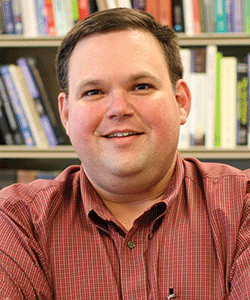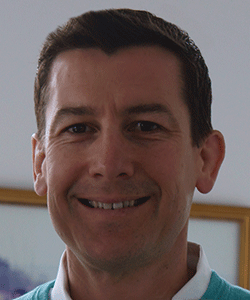James McKeen Cattell Fund Fellowships Awarded
The James McKeen Cattell Fund has awarded its 2013-2014 Fellowships. Presented in partnership with APS, the Fellowships are awarded yearly to North American university faculty committed to developing scientific research in psychology and its applications to improving human welfare. The award provides financial support that allows recipients to extend their sabbatical period from one semester to a full year. The fund was established in 1942, when Cattell, a renowned pioneer of American psychology, donated the majority of his holdings in the Psychological Corporation to create a fund in his name. The Fund’s core objective was to support scientific research and disseminate knowledge that would advance the development of psychological science and its functional applications. In 1974, a set of supplementary sabbatical awards were created from this fund. Information about eligibility for the sabbatical award program and instructions on how to apply for 2014-2015 awards can be found at www.cattell.duke.edu.
 Marie Banich
Marie Banich
University of Colorado Boulder
APS Fellow Marie Banich is a professor of psychology and neuroscience at the University of Colorado Boulder, where she also serves as director of the Institute of Cognitive Science, a multi-disciplinary institute dedicated to exploring the science of the mind. In addition, she serves as the executive director of the Intermountain Neuroimaging Consortium, a joint venture of the University of Colorado Boulder and the Mind Research Network of Albuquerque, New Mexico. Findings from her research have been published in leading journals, including the journal Science. In addition, she is author of a textbook on cognitive neuroscience that is in its third edition. Among her other professional experiences, Banich has been a member of the MacArthur Foundation Research Network on Adolescent Development and Juvenile Justice, as well as a Fulbright Senior Scholar in Verona, Italy.
Banich’s research focuses on understanding the psychological processes that allow us to control our thoughts and actions so that we can prioritize, organize, and target our behavior in a goal-oriented manner, abilities often referred to as executive function. In particular, she uses both anatomical and functional neuroimaging techniques to understand the neural systems that support executive function. Her research has two strands: One strand involves basic research and the other involves teaming up with clinician-researchers to understand how these processes and neural systems are altered in clinical populations, such as young adults with ADHD and youth and adults with substance use disorders.
The focus of her project during the period of her Cattell Sabbatical Award will be to understand the interrelationship between the development of neural systems involved in executive function, and those involved in the interpretation and processing of emotional information, during the adolescent time period. The Cattell award will provide her with the time to synthesize and integrate the two existing literatures on the development of each of these systems, as well as allowing time for empirical research on their interrelationship. As many aspects of mental illness first manifest during adolescence, the Cattell Sabbatical Award will importantly provide time away from her teaching and administrative duties so she can work with clinician-researchers in the Boulder-Denver area who specialize in examining and treating psychiatric disorders whose onset commonly occurs during adolescence. This experience will allow her to better understand the clinical manifestations of such disorders and provide insights into how basic research can be linked to help understand their etiology and potential treatment.
 Stephen G. Lomber
Stephen G. Lomber
University of Western Ontario
Stephen G. Lomber is a professor of psychology and physiology in the Brain and Mind Institute at the University of Western Ontario, Canada. Lomber received his PhD in anatomy and neurobiology from the Boston University School of Medicine in 1994, and has spent much of his career investigating plastic changes in the visual and auditory cortices that occur throughout the life span. His most recent work examines the effects of hearing loss on the cerebrum and how the remaining senses exploit the underutilized auditory cortex.
During his sabbatical, Lomber will continue to study the function of the auditory cortex and how the cortex responds to hearing loss. He will be spending portions of his sabbatical leave in Hannover, Germany, at the Medical University of Hannover working with Andrej Kral. Kral and Lomber, who have been collaborating for many years, will examine the consequences of hearing restoration through the use of cochlear prosthetics. In the second semester of his sabbatical, Lomber will be in Philadelphia working with Yale Cohen at the University of Pennsylvania. At Penn, Lomber will study behavioral training and testing procedures to record neural responses from the auditory cortex of the behaving non-human primate.
 Kevin Wilson
Kevin Wilson
Gettysburg College
Kevin Wilson is an associate professor in the department of psychology and co-coordinator of the program in neuroscience at Gettysburg College, Pennsylvania, where he is also the director of the Cognitive Neuroscience Laboratory. He graduated from Swarthmore College in 1992 with a double major in psychology and philosophy, completed a PhD in experimental psychology with APS William James Fellow Martha J. Farah at the University of Pennsylvania in 1999, and a post-doctoral research fellowship with APS Fellow George R. Mangun at Duke University, before coming to Gettysburg College in 2004. He has been happily married for 15 years and has two children (Sedona, age 13, and Luke, age 9). When he isn’t working, he enjoys spending time with his family, baking bread, travelling, gardening, and photography.
The research in Wilson’s laboratory focuses on the interaction between spatial cognition and higher-level visual processes such as object recognition and visual attention. With his students he uses an array of techniques, including non-invasive brain stimulation (transcranial direct current stimulation, or tDCS), functional brain imaging (fMRI), eye-tracking, and traditional behavioral measures to understand how we recognize objects across a wide range of viewpoints and orientations. A secondary focus of his research is on understanding the roles of different spatial frames of reference on top-down attentional control systems in the brain.
During his sabbatical, he will be conducting research on the cognitive changes that impact visuospatial processes in the early stages of Huntington’s disease. The Cattell Fellowship will allow him to spend six months conducting this research with Lynette Tippett at the University of Auckland, New Zealand. Specifically, they will be examining the role of subcortical brain structures in visuospatial processes such as object recognition and mental rotation. The Cattell Fellowship will allow him to incorporate neuropsychological testing into his broader research program in a way that he would not otherwise be able to.
The Fellowship will open up an exciting new line of research in his laboratory that will benefit his students at Gettysburg College for years to come. He is looking forward to this new challenge and says he is thankful not only to the Cattell Fund for the opportunity, but also to the wonderful mentors and colleagues that he has had over the years — their guidance and support — especially Farah and Mangun.





APS regularly opens certain online articles for discussion on our website. Effective February 2021, you must be a logged-in APS member to post comments. By posting a comment, you agree to our Community Guidelines and the display of your profile information, including your name and affiliation. Any opinions, findings, conclusions, or recommendations present in article comments are those of the writers and do not necessarily reflect the views of APS or the article’s author. For more information, please see our Community Guidelines.
Please login with your APS account to comment.